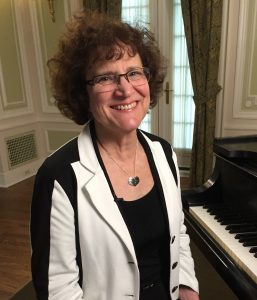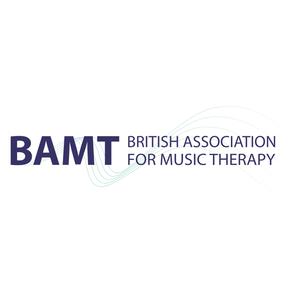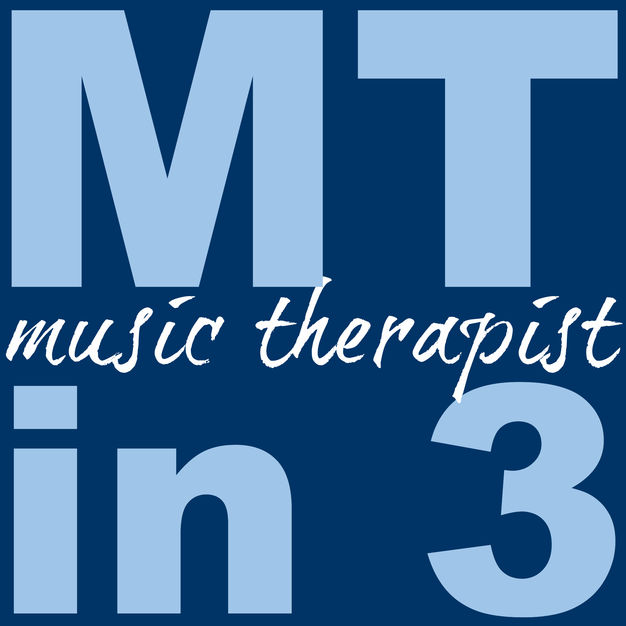
Music Therapy Research Blog
Unknown
Bringing current research to music therapy clinicians
- Family-Based Music Therapy for Non-Clinical Families
by Kimberly Woodman
The practice of family-based music therapy has generally been directed toward families of individuals with special needs, focusing on both the needs of the indivudal and the family context/needs of the parents. There is support within the literature for treating individuals within the family context, with one meta-analysis offering evidence that care provided within the family context offers a range of benefits for the family as a whole as well as for individual family members (Dunst, Trivette, & Hamby, 2007), suggesting that it may be of value to expand access to these services to families outside of the usual clinical context in which music therapists see clients.
The current study under discussion, which was part of Nemesh’s PhD research dissertation, set out to extend family-based music therapy interventions to families who were not seeking treatment for any particular diagnosis or for a particular individual within the family unit. Three families were chosen to participate based on their interest in engaging in short-term family music therapy for the family as a whole that would be delivered at no cost to them. The study was designed to both explore the subjective experiences of the families involved, as well as to investigate the therapeutic possibilities of a family-based music therapy approach.
All families completed six hour-long family music therapy sessions that involved the improvisational method. All three families found the sessions to be effective in revealing underlying family issues without raising defensiveness, as well as in motivating positive change within their interactions. The sessions provided opportunities to practice new ways of relating to each other within the musical improvisations, then helped the families to generalize those changes to their interactions in everyday life.
I think it’s important to note that the music therapist who conducted this study is a dual-expertise therapist, credentialed in both music therapy and family therapy, so interpretation of the applicability of the results should keep this particular factor in mind. This study highlights the strength of combining disciplines to create more effective therapeutic approaches and interventions.
These preliminary results are promising, providing initial evidence that family-based music therapy provided within a short course of treatment may be beneficial. From the therapeutic perspective, the potential of this approach is best summarized by the author herself when she says that “the importance of family music therapy training lies in the fact that, as individuals, we are all part of a family system.” The author makes a strong case for why training in family music therapy should be a part of every music therapy student’s education.
The other aspect of this study that I found particularly intriguing is the intervention’s ability to be an assessment tool for identifying challenges within the family system, and to be able to do so quickly and reliably. We will need more research into this potential use of family-based music therapy, but the results of this study are also promising in this regard.
References
Dunst, C.J., Trivette, C.M., & Hamby, D.W. (2007). Meta-analysis of family-centered helpgiving practices research. Mental Retardation & Developmental Disabilities Research Reviews, 13(4), 370-378. PMID:17979208
Nemesh, B. (2017). Family-based music therapy: From dissonance to harmony. Nordic Journal of Music Therapy, 26(2), 167-184. doi: 10.1080/08098131.2016.1144638
The post Family-Based Music Therapy for Non-Clinical Families appeared first on Music Therapy Research Blog.
20 October 2018, 1:58 pm - Lullaby for Pain Management in the NICU
By Kimberly Woodman
There has been a substantial amount of research conducted within the last 20 years relating to the use of music within the NICU context, both by music therapists and other medical professionals. Researchers have shown that music may be beneficial for decreasing stress symptoms, crying, and the length of NICU stays. Furthermore, music may be used to increase vital signs, coordinate sucking and feeding behaviors, and weight gain. These outcomes indicate that music therapy may be an incredibly beneficial intervention for premature infants. Researchers have also sought to identify whether recorded or live music is most effective in producing positive outcomes, with live music showing a greater effect on both physiological and behavioral characteristics of the infant and social bonding behaviors between infant and parents (see Ullsten, Eriksson, Klässbo & Volgsten).
A 2017 study by Ullsten, Eriksson, Klässbo and Volgsten looked at the use of live lullaby singing for managing pain relating to venepuncture in two premature infants. Lullaby singing was chosen specifically because of its repetitive and predictable structure, as these and other features have been shown to be more effective than infant-directed speech at helping infants regulate their stimulation levels.
Both infants acted as their own controls within the study, each experiencing one venepuncture with standard care alone and one venepuncture with standard care plus the live lullaby singing protocol. The procedures and interventions were video recorded and then subjected to microanalysis using qualitative measures that identified the layers of effects from the treatment (either standard alone or standard with live lullaby singing), as well as a quantitative microanalysis of the two infants’ responses using the validated Behavioral Indicators of Infant Pain (BIIP) assessment tool.
For both infants, there was greater physiological stability throughout the procedures that included the live lullaby singing. The venepunctures that employed live lullaby singing also were shorter in total duration for both infants and required only one needle puncture as opposed to two punctures in the standard care protocols in order to get enough blood for the necessary testing.
The results of this study are promising; however, the major limitation is the sample size of two infants. It would be beneficial to see this type of study conducted with a larger sample of premature infants in order to provide stronger data about this type of intervention. I would also like to see more controlling of possible confounding factors, such as the presence or absence of one or both of the parents during both procedures, the structure of the prelude music leading into the lullaby, and the environmental factors such as outside noise and interactions with the nurse performing the procedures.
This study, combined with other available research findings, does suggest that live lullaby singing could be very beneficial in helping to manage procedural pain in premature infants. The authors of the paper also discuss a potential strength of this approach in involving the parents or caregivers in the actual singing. It would be interesting to see a study examining whether or not having the lullaby sung by a parent or primary caregiver has any impact on the effect of the intervention as compared to having the lullaby sung by the music therapist.
References:
Ullsten, A., Eriksson, M., Klässbo, M., & Volgsten, U. (2017). Live music therapy with lullaby singing as affective support during painful procedures: A case study with microanalysis. Nordic Journal of Music Therapy, 26(2), 142-166. doi: 10.1080/08098131.2015.1131187
The post Lullaby for Pain Management in the NICU appeared first on Music Therapy Research Blog.
21 September 2018, 10:45 pm - MTRB #23 – Petra Kern and Daniel Taguehttp://www.musictherapyresearchblog.com/wp-content/uploads/2017/11/MTRB_23_Kern-Tague-Oct-11-2017-11-1-17-edit.mp3
 Dr. Petra Kern, owner of Music Therapy Consulting, is adjunct Associate Professor at the University of Louisville and Editor-in-Chief of the online magazine imagine. She is a former WFMT President, currently serves on CBMT’s Board of Directors, and is a recipient of AMTA’s Research/Publications award.
Dr. Petra Kern, owner of Music Therapy Consulting, is adjunct Associate Professor at the University of Louisville and Editor-in-Chief of the online magazine imagine. She is a former WFMT President, currently serves on CBMT’s Board of Directors, and is a recipient of AMTA’s Research/Publications award.Dr. Daniel Tague is Assistant Professor and Chair of Music Therapy at Southern Methodist University. With experience as a teacher, clinician, blogger and researcher, he currently serves as Chair of the Clinical Practice Commission of the WFMT.
Link: Their international survey is published in the Journal of Music Therapy
Link for Dr. Kern: www.musictherapy.biz Link for Dr. Tague: www.musicmakessense.blogspot.comThe post MTRB #23 – Petra Kern and Daniel Tague appeared first on Music Therapy Research Blog.
6 November 2017, 10:32 pm - MTRB #22 – Ronna Kaplanhttp://www.musictherapyresearchblog.com/wp-content/uploads/2017/07/MTRB_20_RonnaKaplan-5-24-17EDIT.mp3
Chair of the Center for Music Therapy since 2004 and a Music Therapist at The Music Settlement (TMS) since 1988, Ronna Kaplan has served clients ranging from premature infants to adults through 103 years-of-age with varied disabilities and levels of functioning. Her special interests are young children and individuals with diagnoses on the autism spectrum, language delays and/or problems in the area of social skills, as well as teen parents or those with mental illness. She was instrumental in developing the Center’s Outcomes-Based Measurement tool and program and supervised many TMS Center for Music Therapy interns. Ronna served as TMS Interim Co-Executive Director and Acting Director of the Performing Arts Department/Music School for several months in 2007.
Ronna earned a Bachelor of Music in Music Therapy and Music Education from Michigan State University and a Master of Arts in Special Education from Kent State University. She holds a Certificate in Nonprofit Management from the Mandel Center for Nonprofit Organizations at Case Western Reserve University, as well as certificates in DIRR/Floortime(TM) Basic Course and Orff Level I. She completed her Neurologic Music Therapy training from the Robert F. Unkefer Academy of Neurologic Music Therapy at Colorado State University’s Center for Biologic Medical Research in Music. Ronna conducted research on the effects of music on premature infants in Cleveland Clinic’s Neonatal Intensive Care Unit, as well as music therapy program goals and outcomes for clients with autism spectrum diagnoses at The Music Settlement. Additionally, she taught classes in Music Therapy Practicum and Adapted Percussion classes at Baldwin-Wallace College for 14 years.
She has held significant positions in state, regional, and national music therapy organizations. A Past President of the American Music Therapy Association (AMTA), Ronna co-chaired the AMTA’s Autism Think Tank/Task Force from 2008-2009 and the AMTA Diversity Task Force from 2010- 2015. She served as co-chair of AMTA’s Early Childhood Music Therapy Network from its inception in 1994 until 2006. Ronna has published articles and book chapters, guest lectured at colleges and universities, and presented nationally and internationally. She was honored with the Association of Ohio Music Therapists Past Presidents’ Club Award in 2011, the AMTA Professional Practice Award in 2003, the Great Lakes Region of AMTA’s Service Award in 1997 and their Honorary Life Member Award in 2014.
Currently, Ronna serves as a member of AMTA’s Masters Level Entry subcommittee and the Editorial Board for Music Therapy Perspectives. She became the Chair of the National Coalition of Creative Arts Therapies Associations (NCCATA) in October 2016. She also writes a music therapy column for the Huffington Post.
Music for this episode is “Coasts of Cleveland,” by The Unsacred Hearts.
Errata: At 5:05 the university mentioned should be KSU, not Michigan State University.
The post MTRB #22 – Ronna Kaplan appeared first on Music Therapy Research Blog.
25 July 2017, 3:42 pm - MTRB #21 – Annette Whitehead-Pleauxhttp://www.musictherapyresearchblog.com/wp-content/uploads/2017/06/MTRB_20_12-13-16AnnetteWhiteheadPleauxEDIT.mp3
 Having worked in music therapy for 24 years, Annette Whitehead-Pleaux is an Adjunct Professor at St. Mary-of-the-Woods College in Indiana. Her clinical work is currently focuses on pediatric burn and orthopedic populations at Shriners Hospitals for Children-Boston. There she provides clinical services that focus on pain management, anxiety management, reduction in trauma symptoms, body image, improving fine and gross motor skills, and quality of life issues. In addition to her clinical work, Annette has conducted clinical research on the effects of music therapy on pain. In 2003, she was awarded the Arthur Flagler Fultz Research Grant Award for her research on the effects of music therapy on pain and anxiety of pediatric patients undergoing medical procedures. She has an interest in and has written about using music assisted technology into music therapy practice, trauma, and multicultural issues. Prior to working with pediatric burn patients, she worked with children, adults, and geriatric individuals diagnosed with mental illness. Additionally, she has worked with children in special education classrooms and women and children at a domestic violence program. She has served AMTA since 1997 on the Assembly Delegates, the Board of Directors (2012- present) the Standards of Clinical Practice Committee (2002-present), the Research Committee (1997-2002), Financial Advisory Committee (2010-present), and the MPT Editorial Board (2011-present). She currently is the Speaker of the Assembly of Delegates. In 2003, Annette was named one of Thirty Extraordinary Bostonians by the Boston Event Guide. She was awarded the President’s Achievement Award by the New England Region in 2004 and again in 2012. She has a passion for knitting and being a mom.
Having worked in music therapy for 24 years, Annette Whitehead-Pleaux is an Adjunct Professor at St. Mary-of-the-Woods College in Indiana. Her clinical work is currently focuses on pediatric burn and orthopedic populations at Shriners Hospitals for Children-Boston. There she provides clinical services that focus on pain management, anxiety management, reduction in trauma symptoms, body image, improving fine and gross motor skills, and quality of life issues. In addition to her clinical work, Annette has conducted clinical research on the effects of music therapy on pain. In 2003, she was awarded the Arthur Flagler Fultz Research Grant Award for her research on the effects of music therapy on pain and anxiety of pediatric patients undergoing medical procedures. She has an interest in and has written about using music assisted technology into music therapy practice, trauma, and multicultural issues. Prior to working with pediatric burn patients, she worked with children, adults, and geriatric individuals diagnosed with mental illness. Additionally, she has worked with children in special education classrooms and women and children at a domestic violence program. She has served AMTA since 1997 on the Assembly Delegates, the Board of Directors (2012- present) the Standards of Clinical Practice Committee (2002-present), the Research Committee (1997-2002), Financial Advisory Committee (2010-present), and the MPT Editorial Board (2011-present). She currently is the Speaker of the Assembly of Delegates. In 2003, Annette was named one of Thirty Extraordinary Bostonians by the Boston Event Guide. She was awarded the President’s Achievement Award by the New England Region in 2004 and again in 2012. She has a passion for knitting and being a mom.Annette is co-editor with Xueli Tan of “Cultural Intersections in Music Therapy: Music, Health, and the Person” from Barcelona Publishers.
Music for this episode is “New England Is Interesting (Reprise)” by BOPD from the album Old Paper Houses Soundtrack.
The post MTRB #21 – Annette Whitehead-Pleaux appeared first on Music Therapy Research Blog.
7 June 2017, 9:43 pm - MTRB #20 – Robert Groenehttp://www.musictherapyresearchblog.com/wp-content/uploads/2017/01/MTRB_22_12-13-16RobertGroene.mp3
Robert Groene is an Associate Professor and the Director of Music Therapy at UMKC. He received his BS, MA, and PhD degrees from the University of Minnesota. He is a past professor at The University of Iowa and Wartburg College. Dr. Groene is an active teacher researcher, clinician and research editorial board member in local, regional, national, and international venues. He was a past nominee for President-Elect of the American Music Therapy Association, Past President of the AMTA Midwestern Region, former Co-Chair of the AMTA Standards of Clinical Practice, and a recipient of the AMTA Service Award.
He is a former Interim Associate Dean of Academic Affairs at the Conservatory, a recipient of the Muriel McBrien Kauffman Conservatory Excellence in Teaching Award, and a recipient of the Kauffman Conservatory Service Award. Dr. Groene is a Leadership Fellow of the UM System and Co-Chair of the 2020 Task force Faculty/Staff/Student Climate Subcommittee. His current research interests include the efficacy of music therapy concerning neurologic music therapy, curriculum, imagery, dementia, road rage, dental fears, and aging in community.
Music for this podcast is “Missouri Joe” by Sophie Tucker from the album Edison Amberol Record: 716
The post MTRB #20 – Robert Groene appeared first on Music Therapy Research Blog.
7 January 2017, 11:47 pm - MTRB #19 – Michael Viegahttp://www.musictherapyresearchblog.com/wp-content/uploads/2016/11/MTRB_18_10-24-16-viega.mp3
 Michael Viega, Ph.D., LCAT, MT-BC, is an Assistant Professor of music therapy at the State University of New York (SUNY), New Paltz and a Fellow in the Association of Music and Imagery. He has published and presented on a wide range of topics such as Hip Hop and music therapy (which can be found in a 2016 edition of Music Therapy Perspectives), arts-based research methodologies, therapeutic songwriting, and adverse childhood experiences and adolescent development. He serves on the editorial board for Music Therapy Perspectives and Voices: A World Forum for Music Therapy. He is currently the President-elect of the Mid-Atlantic Region of the American Music Therapy Association (MAR-AMTA) and on a national level, serves on the AMTA Assembly of Delegates.
Michael Viega, Ph.D., LCAT, MT-BC, is an Assistant Professor of music therapy at the State University of New York (SUNY), New Paltz and a Fellow in the Association of Music and Imagery. He has published and presented on a wide range of topics such as Hip Hop and music therapy (which can be found in a 2016 edition of Music Therapy Perspectives), arts-based research methodologies, therapeutic songwriting, and adverse childhood experiences and adolescent development. He serves on the editorial board for Music Therapy Perspectives and Voices: A World Forum for Music Therapy. He is currently the President-elect of the Mid-Atlantic Region of the American Music Therapy Association (MAR-AMTA) and on a national level, serves on the AMTA Assembly of Delegates.Music for this podcast is “Every Door Must Open” from Dr. Viega’s Soundcloud page.
The post MTRB #19 – Michael Viega appeared first on Music Therapy Research Blog.
28 November 2016, 7:20 am - MTRB #18 – Joy Allenhttp://www.musictherapyresearchblog.com/wp-content/uploads/2016/11/MTRB_19_11-2-16_JoyAllen.mp3
 Joy Allen, PhD, MT-BC is an accomplished clinician, researcher, and educator. She has extensive experience working with medical patients where she focuses on psychological health, pain management, and the family system. She is particularly passionate about working with individuals and families facing chronic illnesses, including cancer. Her current research interests include quantitative analysis of the effects of music therapy on the psychological health of medical patients, Guided Imagery & Music with medical patients, as well as medical music therapy theory development and efficacy research. She is currently chair of the music therapy department at Berklee College of Music.
Joy Allen, PhD, MT-BC is an accomplished clinician, researcher, and educator. She has extensive experience working with medical patients where she focuses on psychological health, pain management, and the family system. She is particularly passionate about working with individuals and families facing chronic illnesses, including cancer. Her current research interests include quantitative analysis of the effects of music therapy on the psychological health of medical patients, Guided Imagery & Music with medical patients, as well as medical music therapy theory development and efficacy research. She is currently chair of the music therapy department at Berklee College of Music.Music is Jimniclucl by Kid Romance from the album Boston Hassle Comp
The post MTRB #18 – Joy Allen appeared first on Music Therapy Research Blog.
22 November 2016, 4:31 am - MTRB #17 – Varvara Pasialihttp://www.musictherapyresearchblog.com/wp-content/uploads/2016/09/MTRB_17_09-6-16VarvaraPasiali.mp3
 Varvara Pasiali, PhD, MT-BC, is an associate professor of music therapy at Queens University of Charlotte. She completed her Master’s in music therapy at the University of Kansas and her doctorate at Michigan State. Her research interests include early intervention, prevention, resilience, and parent-child attachment/reciprocity. Dr. Pasiali is a regular presenter at conferences and has published in various journals. She also serves on the editorial board of the Journal of Music Therapy, and Approaches: An Interdisciplinary Journal of Music Therapy.
Varvara Pasiali, PhD, MT-BC, is an associate professor of music therapy at Queens University of Charlotte. She completed her Master’s in music therapy at the University of Kansas and her doctorate at Michigan State. Her research interests include early intervention, prevention, resilience, and parent-child attachment/reciprocity. Dr. Pasiali is a regular presenter at conferences and has published in various journals. She also serves on the editorial board of the Journal of Music Therapy, and Approaches: An Interdisciplinary Journal of Music Therapy.
Mentioned in this podcast:The Foundations of Social Research by Michael Crotty
The effect of musical attention control training (MACT) on attention skills of adolescents with neurodevelopmental delays: a pilot study. Pasiali, LaGasse, and Penn (2014)
A Clinical Case Study of Family-Based Music Therapy by Pasiali (2013)
Supporting parent-child interactions: music therapy as an intervention for promoting mutually responsive orientation. Pasiali (2012)
Music for this podcast is “Povo Que Caís Descalco” by Dead Combo.
The post MTRB #17 – Varvara Pasiali appeared first on Music Therapy Research Blog.
16 September 2016, 5:59 pm - Music Perception in Young Children with SLI
Sallet and Jentschke (2015) studied the relationship between language acquisition and music perception in children with specific language impairments (SLI). While this topic has been studied many times before, Sallet and Jentschke explored a much younger age than has previously been studied (four- and five-year-olds).
Twenty-nine children with SLI were recruited from a local kindergarten in Germany. Additional
recruitments were made from other schools to create two control groups. One group controlled for comparable age while the other controlled for comparable language skills. Each participant attended four to five screening sessions of 20 to 25 minutes. The researchers used a multitude of screenings before starting the sessions, these included a language screening, nonverbal intelligence, linguistic skills, phonemic discrimination, and nonverbal intelligence.A variety of melodic skills were explored during the sessions, including melodic perception, rhythmic-melodic perception, and melody recognition. As predicted by the researchers,
children with SLI scored significantly lower on the musical tasks than those in the control
groups.Due to an unequal variance in the three groups of data the researchers used nonparametric testing to compare the results. Results indicated multiple relationships between the musical skills tested and the scores on the screenings, administered at the beginning of the sessions. This study is interesting for a couple reasons. The results show that language acquisition deficits can be assessed at a younger age.
Due to the discovery of the lack of specific types of music perception in children with SLI, a music therapist should be aware of these deficits when working with these individuals. Since both music and language are both acoustically based, the findings in this study present information that could produce further studies on the effect of music on young children with SLI.
Sallet, S. & Jentschke, S. (2015). Music perception influences language acquisition: Melodic and rhythmic-melodic perception in children with specific language impairment. Behavioral Neurology. doi: 10.1155/2015/606470. PMID: 26508812
The post Music Perception in Young Children with SLI appeared first on Music Therapy Research Blog.
15 September 2016, 11:11 pm - More Episodes? Get the App
Your feedback is valuable to us. Should you encounter any bugs, glitches, lack of functionality or other problems, please email us on [email protected] or join Moon.FM Telegram Group where you can talk directly to the dev team who are happy to answer any queries.


 Music Therapy Conversations
Music Therapy Conversations
 The Music Therapy Show
The Music Therapy Show
 MT in 3
MT in 3
 Guitars & Granola Bars
Guitars & Granola Bars